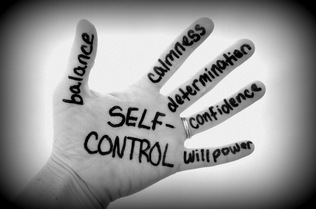 Doreen Virtue says, “Boundaries are a part of self-care. They are healthy, normal, and necessary.” However, we tend to feel that boundaries prevent us from experiencing more of life. It’s like we are missing a pot of gold on the other sided of our boundaries. Truly, some boundaries are bad and can prevent us from reaching required goals but healthy boundaries are necessary for success. For example: A speed limit sign sets boundaries of what speed is needed to be safe in an area. The posted limited is not set to take the fun out of driving but to guide us to successful arrival. Boundaries should be in place to help us accomplish our goals with the least amount of complications. Life with no boundaries is chaotic. 3 Boundaries to Apply 1. Guide – On a tour there is often an experienced person to lead the guest through unfamiliar areas. The guide instructs the guests how to be safe and experience the most at the same time. In our lives we need a guide(s), someone that has the experience, to help set the needed boundaries for our lives. A life guider can simplify and give the reasons for needed boundaries, how to avoid detrimental dangers, and give the way to experience the excitements of a successful life. Find a guide (mentor) who can help you establish boundaries for your life. Work hard to stay within the given limits and guidelines of those who have proven themselves wise. You might want to rebel but keep in mind what has been tested, tried and proven true. Follow the guide! 2. Grip – Self-control comes from a root word meaning "to grip" or "take hold of". When we are willing to grip (limit) our words and actions within the boundaries set by our values and principles, we can see effective results in our lives. Benjamin Franklin said it like this, “Remember not only to say and do the right thing in the right place, but leave unsaid and undone the wrong thing at the tempting moment.” Gripping is taking control of our whole selves. Grip your desires from short-term temptations that conflict with your overarching goals and values. Watch your triggers that are counteractive to your goals. Have YOU in grip (control). 3. Reign – We only have one body and putting boundaries around our bodies’ means that we are the one in charge. We reign! Frederick the Great of Prussia was walking on the outskirts of Berlin when he encountered a very old man proceeding in the opposite direction. "Who are you?” He asked. "I'm a king," replied the old man. "A king!" laughed Frederick. "Over what kingdom do you reign?" "Over me," he proudly replied. Reigning over you requires constant discipline and continuous tweaking of your boundaries to fit and govern each new situation you face. Make a decision to be in control. It is the most effective way to live a productive life. You can be the "king" or "queen" over your life. Summary – Life boundaries are essential to achieving a life of success. Get a reputable guider to help you focus through your life issues, grip your words and actions to match your goals and values, and reign over YOU! Live a life with healthy boundaries.
0 Comments
 A great quote says, “Everything we do is based on the choices we make. It’s not our parents, our past relationships, our job, the economy, the weather, an argument, or our age that is to blame. We are responsible for every decision and every choice we make. Period!” Choices are inevitable to life. If we live, there will always be a choice to be made. So, how do we make the right or the best choice? Three things to consider when faced with fork in the road (choice) moments. 1. Fear of Failure – Fear can dominate our choices. Fear can cause us to react before we think. However, all fear is not bad but needs to be separated with proper thoughts. Emotional fear and factual fear are the two that need to be separated. When we are emotionally fearful it could mean that we don’t fully understand what’s before us and need to gain more knowledge or understanding. When we are fearful due to facts means that we have a understanding of what the choice entails and the possible outcomes that are associated. Factual fear is what we should base our choices on. Gather the facts and be in control over your emotional fears. When fears are controlled, your choices can be solid and sure even if the outcome is not favorable. You know you have made the best choice possible. Experiencing failure after making a wise choice is an opportunity to grow and learn from your mistakes. You can make better choices than the ones you made yesterday. 2. Over-Thinking – Making controlled choices takes place in our minds first. In our minds we often struggle with over-thinking and over-complicating our problems. Clarity must be made between an ‘over analysis’ and a ‘useful analysis. Let's work to make our thoughts useful. Restrict repetitive thoughts that are not producing actions is a must for your success. Over-analyzing’ is detrimental to productive decision making. To make your thoughts useful and productive, structure is needed. Have your standards and your goals in view when about to make a choice. Allow them to guide your decision making. 3. Balance - Being balanced is key to making the proper choices in every situation. An unbalanced life allows feelings to rule and logic to be out the door. On the other side of an unbalanced life is being ruled by just the ‘facts’ without feelings. For example, If I were to ONLY be ruled by my feelings I might bet my mortgage on the winning team of the Super Bowl. Acting on that feeling would be a bad choice. On the other hand we can sometimes be so consumed by ‘the facts’ that we miss solutions! (i.e. - It has to be done this way because it worked last time.) We must strive for balance of the two. Work to have balance between your gut instincts (feelings) and intellectual incite (facts). When in balance you will not be led by a sensory gain (i.e. pleasure of any kind) – but is usually preceded by quiet contemplation. Ask yourself the moral sound question: “Will the choice I’m about to make benefit everyone involved?” Be balanced in all your choices. Summary – You can control your choices to reflect who you desire to be. Control your fears by running them through the facts, don't over-think but put your thoughts into action steps to your goals, and balance your gut feelings and the facts to be real but solid. Make controlled choices!  An anonymous writer said, "Opportunity knocks only once, but temptation leans on the door bell." Temptations are those inner cravings to do something that we shouldn't do. It is a combination of our emotions, behaviors, and desires, conflicting with our overarching goals and values. We are not weak or bad because we face temptations; they are a part of life. The problem comes when we yield or give-in to our temptations, compromising what we value and believe. I feel that we can be victorious over temptations by implementing a few things. 3 Combats for Temptations 1. Prepared – We don’t overcome temptations by ignoring them or thinking they won't come. We overcome them by knowing what they look like and having a plan of defense to execute. In the military soldiers repetitively train against the enemy in simulators. The purpose of the simulators is to allow the soldier to practice the plan before they face the real enemy. Giving in to temptations is your enemy. Being prepared is necessary to overcoming temptations. Know the details of what you are tempted by. Create a game plan to resist. Simulate how you will overcome it in your mind. Execute self control! Develop a plan and be prepared for temptation. It does not have to be your down fall. 2. Perceptive - Normally temptations don’t just jump out of nowhere. Usually, they creep upon us like a cold looking for a vulnerable spot to get in. If we're not perceptive and prepared, temptations like a cold will fully infected us and take us down. Be on the alert! Look for little signs at the onset in your mind. When you find yourself saying “It’s not that bad", or "Just this once", or "I’m not going all the way". These are "bait statements" that can draw you further from your goals. Remember, yielding to temptations can take you further than you want to go, keep you longer than you want to stay, and can cost you more than you want to pay. Be perceptive! Overcome approaching temptations by perceiving their long term effects in the present. 3. Pass-by (Avoid) - Tim Daniels, states that, “an effective way to overcome some temptations is not to fight but to avoid." Temptations can get stronger the more we try to fight them head on. For example, A man who is tempted by a young woman that's off limits, should not try to figure out how to fight temptation face to face. He probably should just pass-by (avoid) the entire situation. When he knows of her whereabouts, his plan should be to avoid encounters by any means necessary. Don't be afraid to run away from temptations. Be in charge of you! Don’t allow your temptations to define you and make you think and do things that you don’t want to. Learn to pass-by the things that destroy your goals. Summary - Overcoming temptations is imperative for success. Work on being prepared to the best of your ability. Keep your eyes open, be perceptive, and look out for temptations that are out to destroy you. When in doubt about facing a temptation that's optional, go the other way. It's best to miss a little something than to get it all and fail. Combat your temptations!  Toy Smith said, "Self control (discipline) is the fire by which talent becomes ability". We have the potential and abilities needed to do great things. However, life challenges can cause us to focus on what we can’t do instead of what we can. To overcome this huge distraction we must execute self-control. Gordon MacDonald says that, "when we are afraid of discipline we do the minimum but when we are unafraid of control (discipline) we have no problem doing the maximum". 3 Areas to Control for Success 1. Thinking – Our minds are powerful. What we think can become our reality. So if this is so we must control our thoughts so that we can be in the places we desire in the future. This doesn't come easy when our thoughts are negative about ourselves. If we don't believe we can do it, then we probably won't do it. This doesn't mean that it's impossible, but it does mean that our thoughts are making it impossible for it to become reality. Work on having controlled thoughts by only allowing thoughts that produce success to linger around. Separate your negative thoughts from the positive ones. This doesn't mean that you ignore reality but it means that you control the thoughts you allow to develop. Be thought controlled to acheive your success. 2. Emotions – We are emotional creatures full of feelings. When we get up in the morning our feelings and emotions are usually what we think about first. For example: I'm tired, I'm sleepy, I'm thirsty, etc. John Maxwell says that we have only two choices when it comes to them: we can either master them or be mastered by them. To master them does not mean that we over look them and act as if they don’t exist but it does mean that we will not allow our feelings and emotions to drive and push us to do things that we don’t want to. Put your feelings and emotions in their place by mastering (controlling) them. When you feel a certain way think through that feeling or emotion to the end before acting on it. Ask yourself, "What would happen if I acted out the way I feel or allowed this feeling to tell me what to do". If you see the outcome is not successful, push it out. Continue to control your emotions. 3. Actions – We have heard the phase, "Actions speak louder than words". Simply put, it’s easier to judge what is being done instead of what is being said. Getting the mouth and body to line up is a challenge to practice but extremely necessary to acheive success. To control our actions we must view our words and actions as one. What we say is what we will do or try to do. Let your actions meet your verbal obligations or sentiments. Control your words. Be honest with yourself first. Know what you are talking about before you open your mouth. If you don't know what you're talking about keep your mouth closed. Words are meaningless without the actions to support them but beautiful when they are supported by loving actions. Select your words wisely and remember they are unnecessary when your actions speak volumes. Summary – To live a controlled life for success - "Think" instead of reacting, "Process emotions" instead of losing them, "Act out desires" instead of just talking about them. Don't make permanent mistakes because of temporary feelings. Live controlled! |
Archives
December 2020
|
"Delivering Peak Performance Behavior Training"
(601) 879-GOAL (4625)
[email protected]
Copyright © 2012-2024
(601) 879-GOAL (4625)
[email protected]
Copyright © 2012-2024

